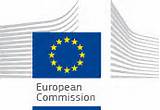Back in February Consumer Watchdog wrote to 27 of the 28 members of the European Union's College of  Commissioners objecting to the tentative antitrust settlement with Google on both the merits of the deal and the procedures that were being followed.
Commissioners objecting to the tentative antitrust settlement with Google on both the merits of the deal and the procedures that were being followed.
Today I got a letter in response from Alexander Italianer, Director-General for Competition, explaining what's next:
[I]n the coming period, the Commission will send complainants a detailed provisional assessment, setting forth the reasons why it is of the preliminary view that the revised commitments can adequately address the concerns in this case. I can assure you that the Commission will duly examine the responses before taking a final decision on whether to make Google’s revised commitments legally binding.
In other words, while it looks likely the Commission will accept Google's third set of Commitments, the deal with the Internet giant is not yet done. Italianer explained why the Commission is moving forward:
As Vice-President Almunia has outlined, on the basis of all the information on its file the Commission has come to the preliminary view that the revised commitments submitted by Google can adequately address the competition concerns identified by the Commission. Whilst I understand that your organisation has concerns about the content of Google’s revised commitments, the Commission must at a certain point come to such a preliminary view. Otherwise, there would be a perpetual back and forth if revised commitments were to be market tested until every market participant was happy on every point. Moreover, if the nature or scope of commitments is not altered, there is no requirement to conduct an additional market test. Whilst there have been improvements in certain key elements of Google’s revised commitments, these do not change their nature or scope.
Read Italianer's letter to Consumer Watchdog here.
In our February letter to the Commission I wrote, "At a minimum any remedy must insist that Google use an objective, nondiscriminatory mechanism to rank and display all search results – including links to Google products.”
I also asked if the proposed settlement met Competition Commissioner Joaquin Almunia's stated goal of protecting consumers, why was it that leading consumer organizations on both sides of the Atlantic – BEUC and Consumer Watchdog – remain adamantly opposed to the proposed deal?
Read Consumer Watchdog's February letter here.
Another objection I raised in February was the Commission's plan not to release the Commitments to the public. In the face of heavy criticism of the Commission's plans to keep the deal shielded from public view, Google decided to make the Commitments public itself.
Read Google's Commitments here.
 "More generally, Google has made its revised commitments public. Therefore, complainants, third parties and members of the public can provide input on them as appropriate," wrote Italianer.
"More generally, Google has made its revised commitments public. Therefore, complainants, third parties and members of the public can provide input on them as appropriate," wrote Italianer.
"As you know, the Commission has carried out two extensive rounds of market feedback of previous commitments offered by Google in which Consumer Watchdog participated. We are grateful for your engagement in this regard," Italianer politely wrote.
I've been studying the Commitments and have found serious shortcomings. Consumer Watchdog is still engaged. Director-General Italianer and his colleagues can expect another letter.






